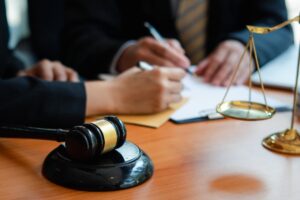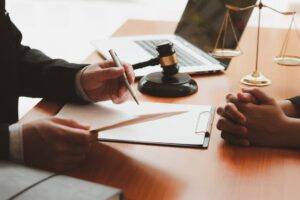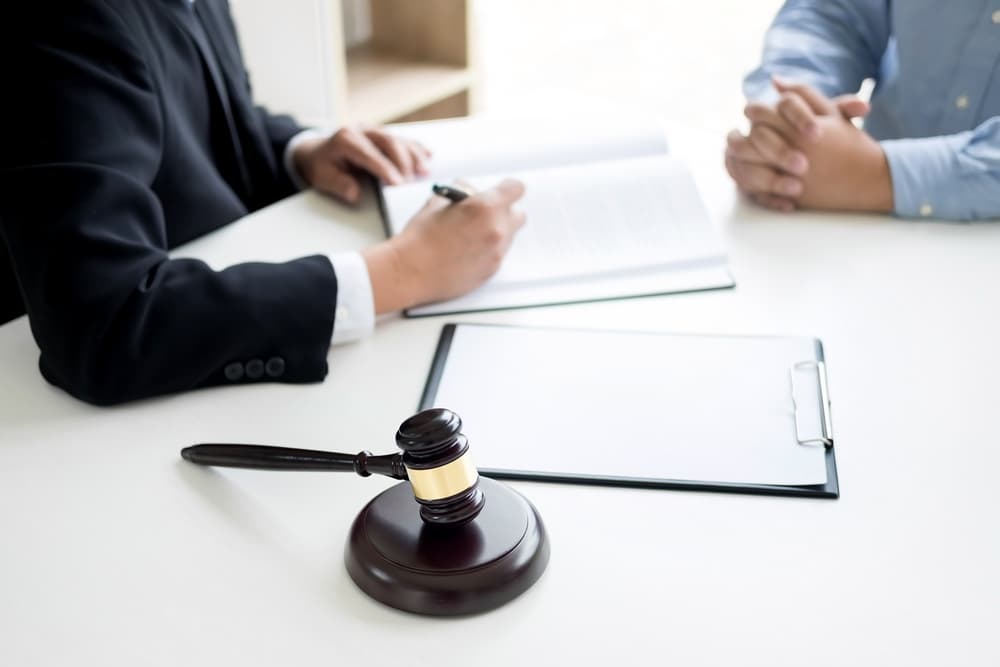How To Choose A Criminal Defense Lawyer
If you’re facing a criminal charge, you’re likely experiencing a lot of stress and confusion. You might wonder how to choose a Dallas criminal defense lawyer. As this is one of the most important decisions you’ll ever make, do your research and take your time to make the best possible choice for your specific situation. The following is some information to help in your decision-making process.
Knowledge and Experience
Choosing a criminal defense lawyer with extensive knowledge of the specific type of charge you’re facing is crucial for a successful outcome. Different criminal charges require unique legal strategies and knowledge.
For instance, defending a DUI charge involves understanding field sobriety tests, breathalyzer technology, and state-specific DWI laws. Defending against drug offenses requires familiarity with search and seizure laws, drug classification, and potential diversion programs. White-collar crimes, such as fraud or embezzlement, require understanding complex financial transactions and regulatory compliance.
Extensive experience can make a significant difference in various scenarios. If you face a DUI charge, look for a criminal defense lawyer who knows the nuances of state DUI laws. You’ll want an attorney who can challenge the accuracy of breathalyzers and negotiate plea deals for reduced charges or alternative sentencing programs.
A criminal defense lawyer with experience in drug cases can spot illegal search and seizure tactics, potentially leading to the court throwing out evidence. They can also argue for participation in drug diversion programs instead of jail time. An attorney with experience in white-collar crime cases will understand intricate financial documents and work effectively with forensic accountants, building a defense based on procedural errors or negotiating settlements that minimize reputational damage.
By choosing a lawyer with a deep understanding of your charge’s specific legal and procedural aspects, you’re more likely to receive a defense tailored to your situation, increasing the chances of a favorable outcome.
Understand Your Legal Team
 A well-rounded legal team is essential in building a robust defense strategy. The primary criminal defense lawyer is just one part of this team, which may also include paralegals, investigators, and expert witnesses. The following is a closer look at the roles these other key team members often play in cases like yours.
A well-rounded legal team is essential in building a robust defense strategy. The primary criminal defense lawyer is just one part of this team, which may also include paralegals, investigators, and expert witnesses. The following is a closer look at the roles these other key team members often play in cases like yours.
-
- Paralegals handle the extensive paperwork and research necessary for your case. They manage documents, draft motions, and organize evidence, ensuring everything is in order for court proceedings.
-
- Investigators gather crucial evidence that supports your defense by interviewing witnesses, reviewing surveillance footage, and finding inconsistencies in the prosecution’s case. Their work can uncover critical details that might otherwise go unnoticed.
-
- Depending on the nature of your case, expert witnesses provide specialized knowledge that can be pivotal. For example, forensic experts can challenge the validity of physical evidence, while medical experts might testify about injury causation in an assault case.
A well-rounded legal team thoroughly prepares all aspects of your defense. Paralegals and investigators support your lawyer by handling the groundwork, allowing your lawyer to focus on strategy and courtroom performance. Expert witnesses lend credibility and depth to your defense, presenting complex information in a manner that’s understandable to the jury.
This comprehensive approach ensures a meticulous, multifaceted defense. The best legal teams will address every possible angle to strengthen your case. By leveraging the skills and knowledge of a complete legal team, your primary attorney can present a well-organized and compelling defense.
Reputation and Track Record
When choosing a criminal defense lawyer, evaluating their reputation and track record is also vital. An attorney’s reputation within the legal community and history of court outcomes can provide insights into their effectiveness and reliability.
Peer Reviews
Evaluating a lawyer’s reputation involves looking at peer reviews and their standing in professional associations. Lawyers often receive reviews and ratings from their peers, and high ratings suggest respect and recognition for their skills and professionalism. Membership in prestigious legal organizations can indicate a lawyer’s commitment to their field.
Track Record
 Researching a criminal defense lawyer’s track record involves examining client reviews and testimonials, reviewing case outcomes, and observing their courtroom performance. Online reviews and testimonials from past clients provide firsthand accounts of a lawyer’s performance, particularly regarding communication, reliability, and outcomes.
Researching a criminal defense lawyer’s track record involves examining client reviews and testimonials, reviewing case outcomes, and observing their courtroom performance. Online reviews and testimonials from past clients provide firsthand accounts of a lawyer’s performance, particularly regarding communication, reliability, and outcomes.
A successful track record of dismissals, acquittals, and favorable plea deals indicates their ability to achieve positive results for their clients. You can often find this information on the attorney’s website or through legal databases. Observing or asking about their courtroom demeanor and performance can also provide valuable insights into their effectiveness.
A lawyer’s reputation and track record can significantly impact your case’s outcome. Choosing a lawyer with a solid reputation and proven success increases your chances of a favorable resolution.
Communication and Accessibility
Clear communication and accessibility are fundamental to a successful attorney-client relationship. Understanding how your lawyer will keep you informed and involved throughout your case can significantly impact your overall experience and the outcome.
An attorney who communicates effectively will keep you informed about your case’s progress, potential outcomes, and any new developments. They’ll explain complex legal concepts in understandable terms, helping you make the best decisions. Regular updates about your case status can alleviate anxiety and build trust.
Prompt Responses
A good lawyer should respond promptly to your calls, emails, and questions, providing timely updates and being available to discuss your concerns. It’s essential to ask about their typical response time and how they prefer to communicate. Expect your lawyer to be transparent about all aspects of your case, including potential challenges and realistic outcomes. They should clearly explain their strategy and any actions they plan to take on your behalf.
Accessibility goes beyond just being reachable; it means being available for meetings, explaining your case status, and ensuring you understand every step of the process. A lawyer who makes themselves accessible demonstrates their commitment to your case.
What the Initial Consultation Will Tell You
Effective client-lawyer interaction starts with the initial consultation, where you can gauge how well the lawyer communicates. Assess the lawyer’s communication style throughout the case, looking for regular check-ins, detailed updates, and proactive communication. Clear communication and accessibility foster a collaborative and trusting relationship between you and your criminal defense lawyer, ensuring they keep you informed and involved.
When it comes to how to choose a criminal defense lawyer, you can’t overestimate the importance of communication. It makes the legal process more manageable and less stressful.
Personal Compatibility
Personal compatibility is another critical consideration when choosing a criminal defense lawyer. The rapport between you and your criminal def lawyer is crucial for a successful attorney-client relationship. Trust and mutual respect are foundational to effective collaboration and a favorable legal outcome.
Trust is essential; you must share sensitive information with your lawyer and believe in their commitment to your best interests. Trust is built through honesty, transparency, and consistent communication. A good rapport makes it easier to communicate openly and effectively. When you feel comfortable with your lawyer, you’re more likely to share important details and follow their advice. Mutual respect ensures a professional and collaborative relationship. A lawyer who respects your opinions and concerns will work diligently to address them.
Using the Initial Consultation to Determine Compatibility
Evaluating personal compatibility starts with the initial consultation. Pay attention to how the lawyer listens to your concerns and answers your questions. Consider the lawyer’s communication style. Are they clear and straightforward, or do they use too much legal jargon?
Evaluate how approachable the lawyer is. Are they patient and willing to take the time to explain things, or do they seem rushed and dismissive? A good lawyer balances professionalism with empathy, demonstrating a genuine concern for your situation while maintaining a professional demeanor.
Building a strong relationship with your lawyer involves fostering open communication by being honest and forthcoming. Share all relevant information, even if it seems unimportant or embarrassing. Take an active role in your case by asking questions and staying informed. Provide feedback to your lawyer about what’s working and what’s not, helping improve communication and collaboration. Personal compatibility enhances the effectiveness of your legal defense, ensuring a more positive and productive attorney-client relationship.
What to Ask During the Initial Consultation

As you can see, the initial consultation with a criminal defense lawyer is crucial to determine if you think they’re right for your case. Asking the right questions can help you determine if the lawyer has the experience, approach, and personality that align with your needs. Here are a few to keep in mind.
-
- “How many cases like mine have you handled?”
-
- “What were the outcomes of those cases?”
-
- “Do you have experience with the type of charge I’m facing?” and “What specific strategies have you used in similar cases?”
-
- “Who will be working on my case besides you?”
-
- “Can I meet the other members of your team?”
Also, discuss how they manage cases like yours and how often you will receive updates. Ask about their fee structure and any additional costs, and clarify how they prefer to communicate and their typical response time. Understanding their courtroom experience is also crucial – ask, “How often do you take cases to trial?” and “What is your approach if we need to go to court?”
Other Areas to Cover
Talk about other essential topics, such as the expected timeline for your case, potential defense strategies, and realistic outcome assessments. Request references from past clients or look for testimonials and reviews online to gather additional insights.
Be cautious if the lawyer has little experience with cases similar to yours, is difficult to reach, or doesn’t communicate clearly during the consultation. Another red flag is if they give vague or evasive answers. In addition, avoid lawyers who guarantee specific outcomes, as no lawyer can predict the future with certainty.
By asking these key questions and covering essential topics, you can decide whether the lawyer is the right fit for your case.
Preparing for Worst-Case Scenarios
The last thing you want to do is consider what happens if the court finds you guilty. However, preparing for all possible outcomes, including worst-case scenarios, is essential. The best criminal defense lawyer will explain the potential risks and develop contingency plans to reduce stress and enhance your defense strategy.
Understanding and preparing for worst-case scenarios ensures that events don’t catch you off guard. Knowing the full range of potential outcomes helps set realistic expectations and reduces the shock if things don’t go as planned. Having a plan in place for adverse outcomes can provide a sense of control and readiness, minimizing anxiety.
A Realistic Outlook
Your criminal defense lawyer must provide a realistic assessment of your case based on their experience and knowledge of the law. They should explain the possible outcomes and the likelihood of each, developing defense strategies that not only aim for the best possible outcome but also consider and prepare for less favorable results.
If a trial’s risks are high, your attorney might negotiate a plea deal that lessens the worst-case scenario. They might, for example, work to convince the prosecution to reduce the charge or recommend a lighter sentence. Your attorney should also provide emotional support and reassurance, helping you cope with the stress of the legal process.
Detailed discussions about potential outcomes, including worst-case scenarios, ensure you receive all the information you need to prepare for whatever might happen. This allows you to plan for each possible outcome. This might include financial planning for fines or restitution, preparing for possible incarceration, and understanding the impacts on your personal and professional life.
Having realistic expectations ensures you can make better-informed decisions about your case. Knowing you have a plan for every scenario can significantly reduce anxiety and help you remain calm and focused. Being prepared for all outcomes allows you and your lawyer to remain flexible and adapt your strategy as your case progresses.
By preparing for worst-case scenarios, you can face your criminal charges with greater confidence and peace of mind. A proactive and comprehensive approach ensures you’re ready for any eventuality, potentially strengthening your defense strategy.
A Skilled Criminal Defense Lawyer is Waiting to Hear from You
Hopefully, you now have a better idea of how to choose a criminal defense attorney. Please don’t hesitate to contact an attorney so they can start crafting the best strategy to achieve the most favorable
SCHEDULE A FREE CONSULTATION